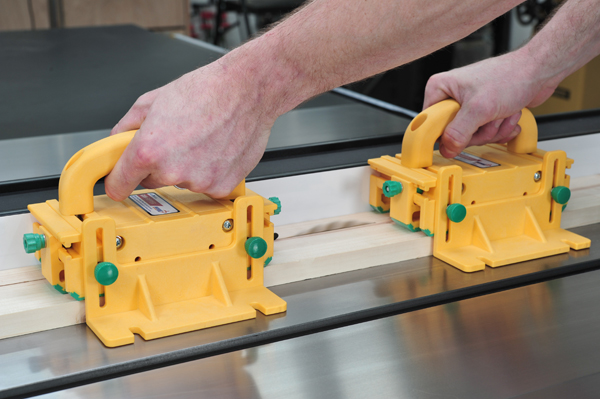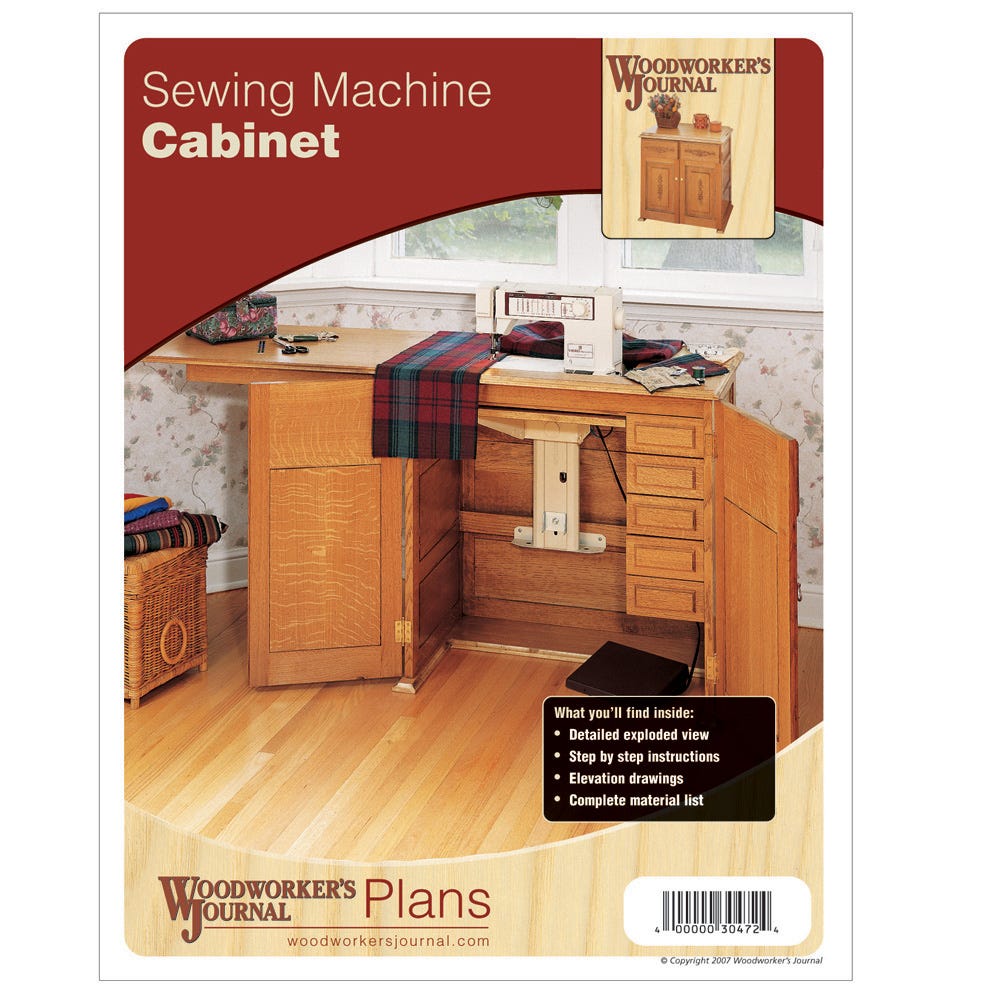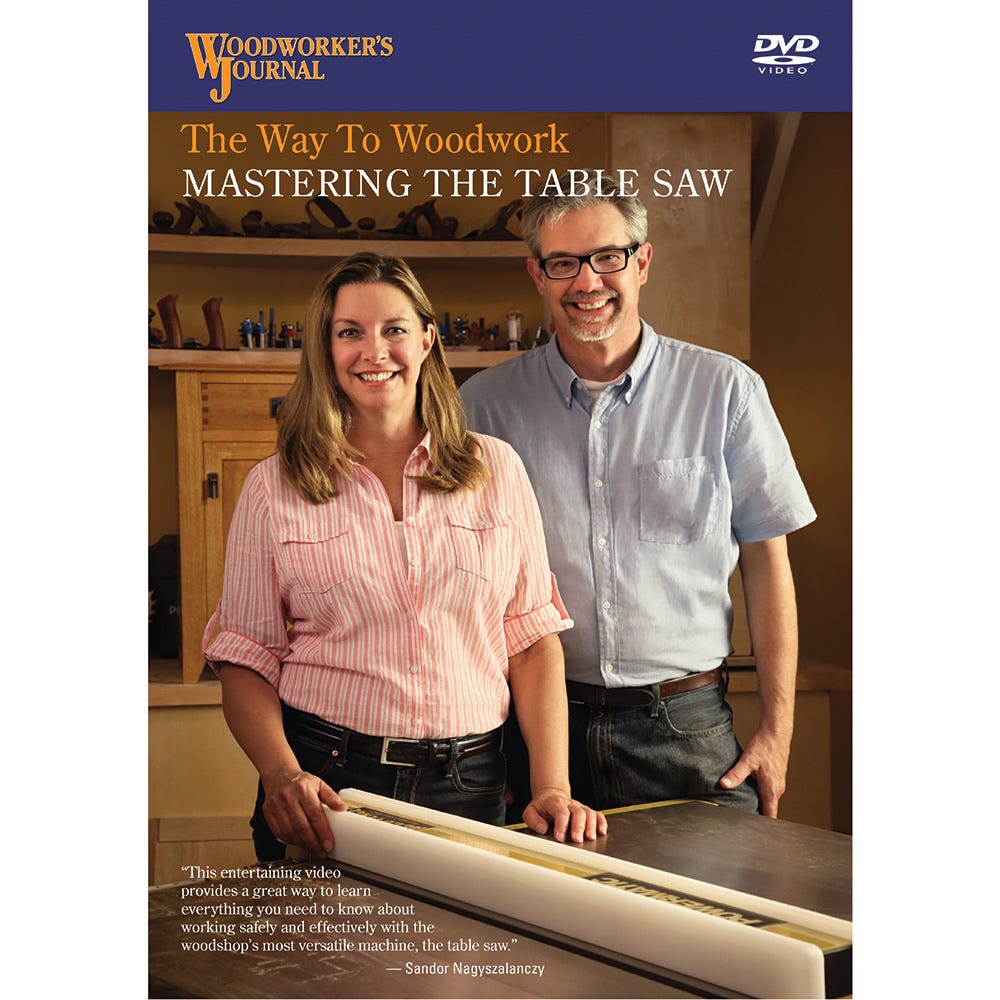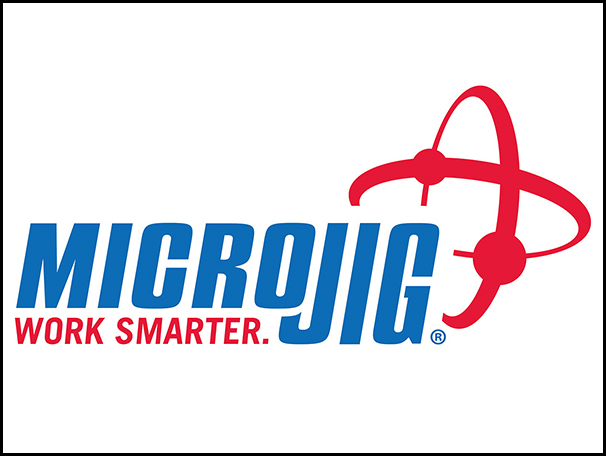
There was a lot of buzz happening at Microjig’s booth at the recent International Woodworking Fair (IWF) in Atlanta. But, this time, the energy wasn’t just coming from attendees watching demos of Microjig’s various table saw jigs in action. The company was also launching a bold new “Safety for Every Shop Program,” in the hopes of helping the table saw industry eliminate saw-related accidents in the next two years.
The program’s goal is to supply all 2,714 public high schools in America with a pair of Microjig’s revolutionary GRR-RIPPER® pushblocks — widely considered to be a safer alternative to traditional push sticks.
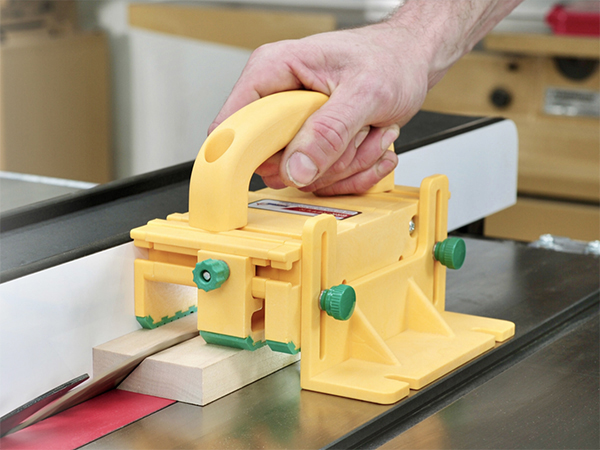
“We’ve had the idea (for the ‘Safety for Every Shop Program’) floating around for about 5 years, and maybe even longer,” says Bruce Wang, Microjig’s CEO.
He says the final decision to commit the company to the plan didn’t come about until he read a 2017 Consumer Product Safety Commission table saw injury report that indicates that OEM blade guards and standard safety devices aren’t materially reducing the incidences and severity of table saw accidents in the USA.
“Considering that there’s still over 50,000 medically treated table saw injuries every year, and standard safety systems have been deemed ineffective at reducing injuries, we believe woodworkers have been given bad advice all these years,” Wang says. “Using exposed hands and flimsy push sticks is a broken way to operate the most powerful and dangerous power tool in the shop.”
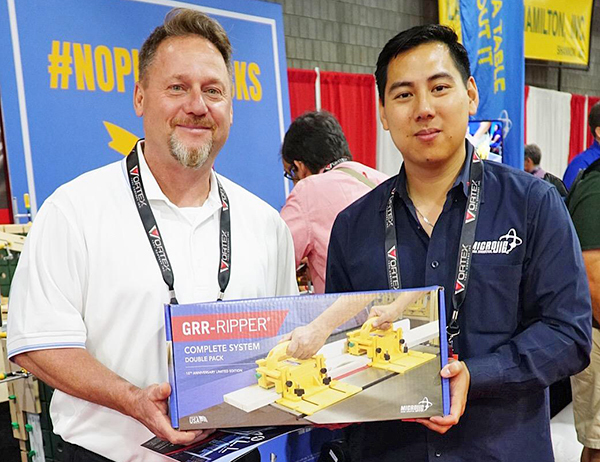
In contrast to most conventional or shop-made push sticks, which require users to hold the device in range of the blade and without a shielding form of protection from it, GRR-RIPPERs provide a “bridge” over the blade that serves as a barrier to prevent hand contact. A closed-ended handle on top provides better control, and the device can be quickly and easily configured to help users make either wide or narrow rip cuts, depending on the task at hand. GRR-RIPPERs also help to reduce the risk of kickbacks, because both the workpiece and the offcut remain in the operator’s control until the rip cut is completed.
The terms of Microjig’s “Safety for Every Shop Program” are simple: any public high school in America that has a Career Technical Education (CTE) program offering woodworking and construction courses is eligible to receive two GRR-RIPPER 3D Pushblocks (model GR-100) at no cost by filling out an online application form on Microjig’s website: microjig.com/schools. The form was added on Aug. 22, 2018, when the “Safety for Every Shop Program” officially launched at IWF. There is no deadline for schools to apply.
On hand at the show to receive the first two GRR-RIPPER donations from Wang were teachers from two Atlanta-area schools: Alonzo A. Crim Open Campus High School and Benjamin E. Mays High School.
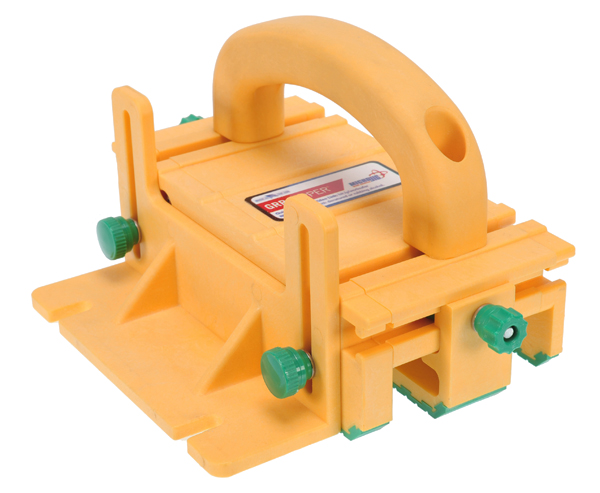
Since IWF, Wang reports that around 80 high schools have applied for free GRR-RIPPERs. As an added safety incentive, the program also makes participating high schools eligible for a 50 percent discount on Microjig’s six other woodworking product lines. Those include a tapering jig, table saw splitter, a dovetail-style hand-clamp, arbor shim system, adjustable miter bars for jigs and a pushblock for router table, band saw or jointer operations.
Microjig reports that each GRR-RIPPER retails for around $59; if every eligible public high school participates, the company aims to donate more than $325,000 in total to table saw safety.
While some public middle schools also offer woodworking courses, Wang says the company doesn’t have much data about how many middle schools could benefit from a similar donation. “Based on our experiences,” he adds, “most middle schools will not allow the students to operate the table saw. This is not to say we won’t include them in the program later on, but high school education is where we want to start.”
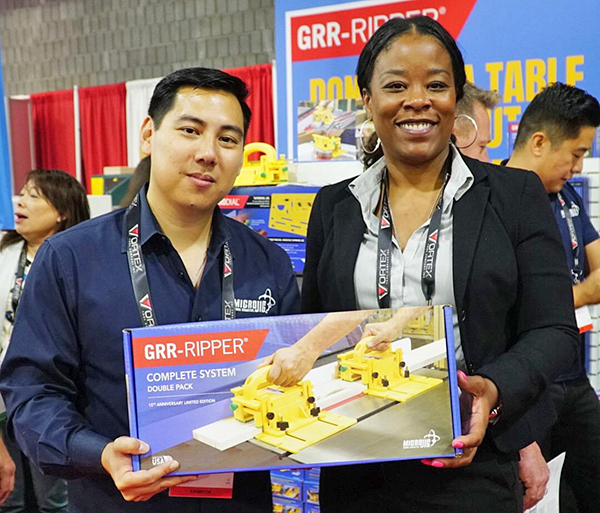
Wang says the company doesn’t have plans to expand the program to technical and community colleges, but he does see an opportunity to extend its reach internationally to countries with similar high school trade education programs.
In order to help realize the goal of eliminating table saw injuries by 2020, Wang says that it’s going to take “bold moves” across the table saw industry as a whole. He hopes Microjig’s GRR-RIPPER donation program will help lead the way and prompt other companies to follow suit.
“We’re thrilled we can share our tried-and-proven technology and the number one table saw pushblock in the world with students at the beginning of their career so they can develop safer and more productive habits,” Wang says. “We’re excited for the opportunity to create a future where new craftsmen and women will never know finger amputation or kickback on a table saw. We’re on a mission to help people build their dreams … in a safer and smarter way.”
Learn more about Microjig and its products by clicking here.
